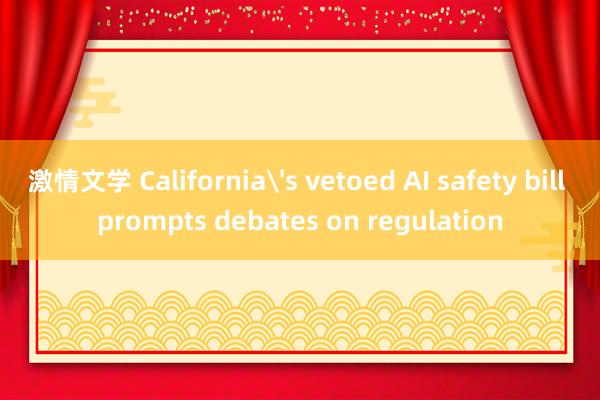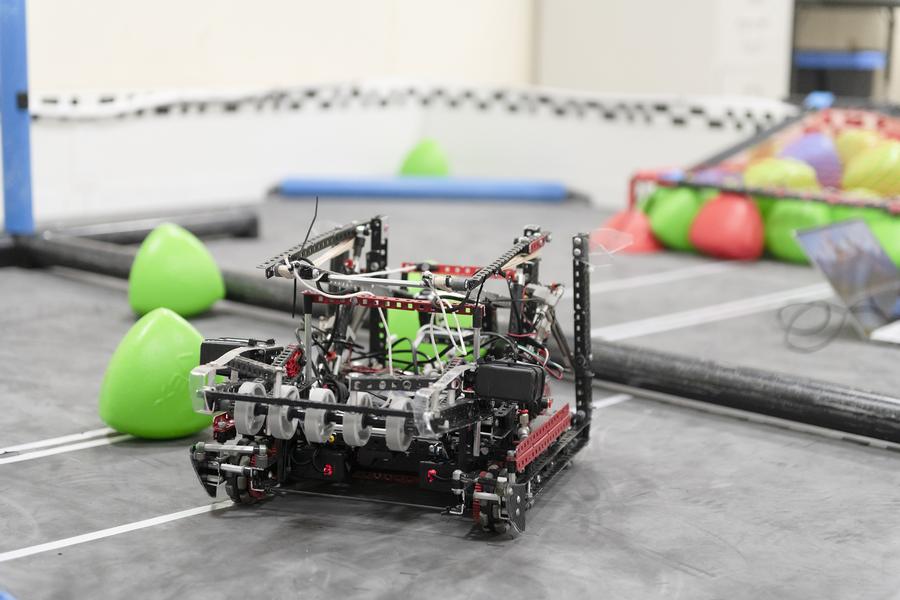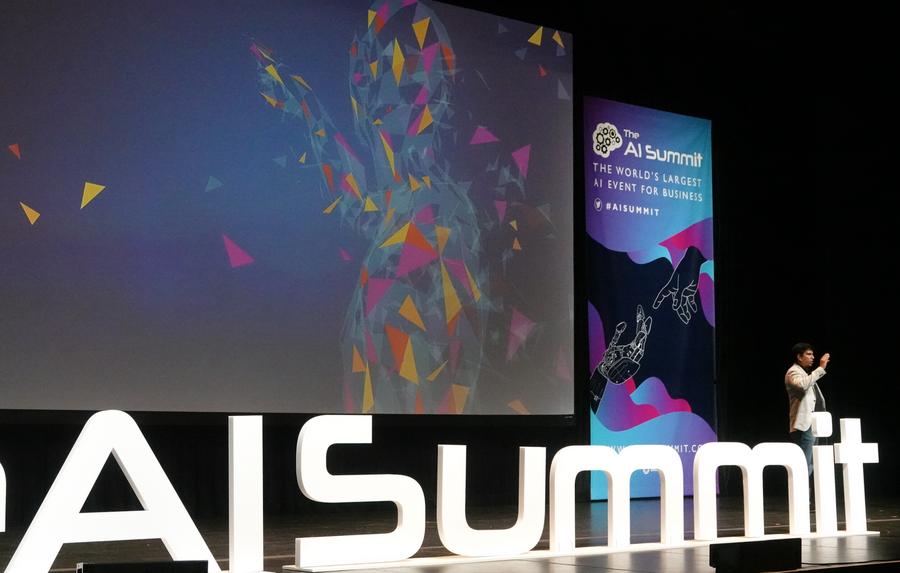
激情文学 California's vetoed AI safety bill prompts debates on regulation
发布日期:2024-10-03 08:33 点击次数:153


The outcome of California's AI regulation efforts is expected to have far-reaching implications激情文学, given its leading position in tech-related legislation, such as data privacy.
by Wen Tsui
SACRAMENTO, the United States, Oct. 1 (Xinhua) -- Governor of the U.S. state of California Gavin Newsom's recent veto of a bill on artificial intelligence (AI) safety has ignited a nationwide debate over how to effectively govern the rapidly evolving technology while balancing innovation and safety.
On Sunday, Newsom vetoed SB 1047, also known as the Safe and Secure Innovation for Frontier Artificial Intelligence Models Act, saying the bill is not "the best approach to protecting the public from real threats posed by the technology."
In his veto message, the governor said the bill "magnified" the potential threats and risked "curtailing" innovation that drives technological development.
The vetoed bill, introduced by California State Senator Scott Wiener, had passed the California legislature with overwhelming support. It was intended to be one of the first in the country to set mandatory safety protocols for AI developers.
If signed into law, it would have placed liability on the developers for severe harm caused by their models. Designed to prevent "catastrophic" harms by AI, the bill would apply to all large-scale models that cost at least 100 million U.S. dollars to train, regardless of the potential damage.
The bill would require AI developers to publicly disclose the methods for testing the likelihood of the model causing critical harm and the conditions under which the model would be fully shut down before training began.
Violations would be enforceable by the California Attorney General with the civil penalty of up to 10 percent of the cost of the quantity of computing power used to train the model and 30 percent for any subsequent violation.

According to an analysis by Pillsbury Winthrop Shaw Pittman LLP, a law firm specializing in technology, the bill could have a "significant" impact on large AI developers, entailing "significant testing, governance, and reporting hurdles" for those companies.
The bill's broad scope has sparked a debate around whose behavior should be regulated - the developers or deployers of AI models.
Some in the tech industry urge lawmakers to focus on the contexts and use cases of AI rather than the technology itself.
Lav Varshney, associate professor of electrical and computer engineering at the University of Illinois at Urbana-Champaign, told technology website VentureBeat that the vetoed bill would have unfairly penalized original developers for the actions of those using the technology.
He advocated for "a shared responsibility" among original developers and those who fine-tune AI for specific applications.
Many experts raised concerns about the bill's potential "chilling effect" on open-source AI, a collaborative approach to AI development that allows developers to access, modify, and share AI technologies.
桃乃木香奈 黑丝Andrew Ng, co-founder of Coursera, a U.S. online course provider, praised Newsom's veto as "pro-innovation" in a social media post, saying it would protect open-source development.
In response to the veto, Anja Manuel, executive director of the Aspen Strategy Group, said in a statement that she advocated for "limited pre-deployment testing, focused only on the largest models."
She pointed to a lack of "mandatory, independent and rigorous" testing to prevent AI from doing harm, which she called a "glaring gap" in the current approach to AI safety.
Drawing parallels to the Food and Drug Administration's regulations in the pharmaceutical industry, Manuel argued that AI, like drugs, should only be released to the public following thorough testing for safety and efficacy.
Following the veto, Governor Newsom outlined alternative measures for AI regulation, calling for a more focused regulatory framework that addresses specific risks and applications of AI rather than broad rules that could affect even low-risk AI functions.
The outcome of California's AI regulation efforts is expected to have far-reaching implications, given its leading position in tech-related legislation, such as data privacy.
"What happens in California doesn't just stay in California; it often sets the stage for nationwide standards," said the Pillsbury analysis.

Be it developers or deployers of AI systems, Pillsbury advised companies to develop a comprehensive compliance strategy and take a proactive approach, given the fast-evolving regulatory landscape around the world.
"Safe and responsible AI is essential for California's vibrant innovation ecosystem激情文学," said Fei-Fei Li, professor in the Computer Science Department at Stanford University and co-director of Stanford's Human-Centered AI Institute. "To effectively govern this powerful technology, we need to depend upon scientific evidence to determine how to best foster innovation and mitigate risk." ■
